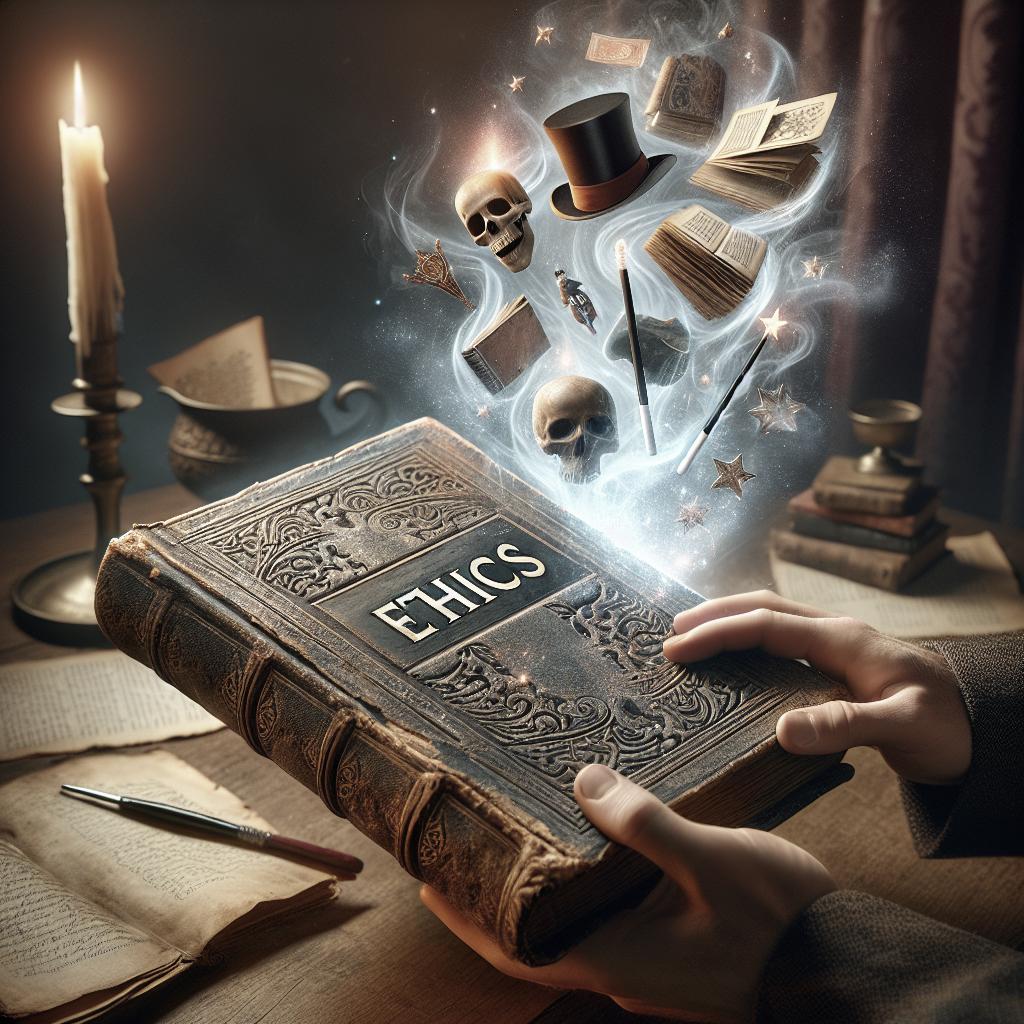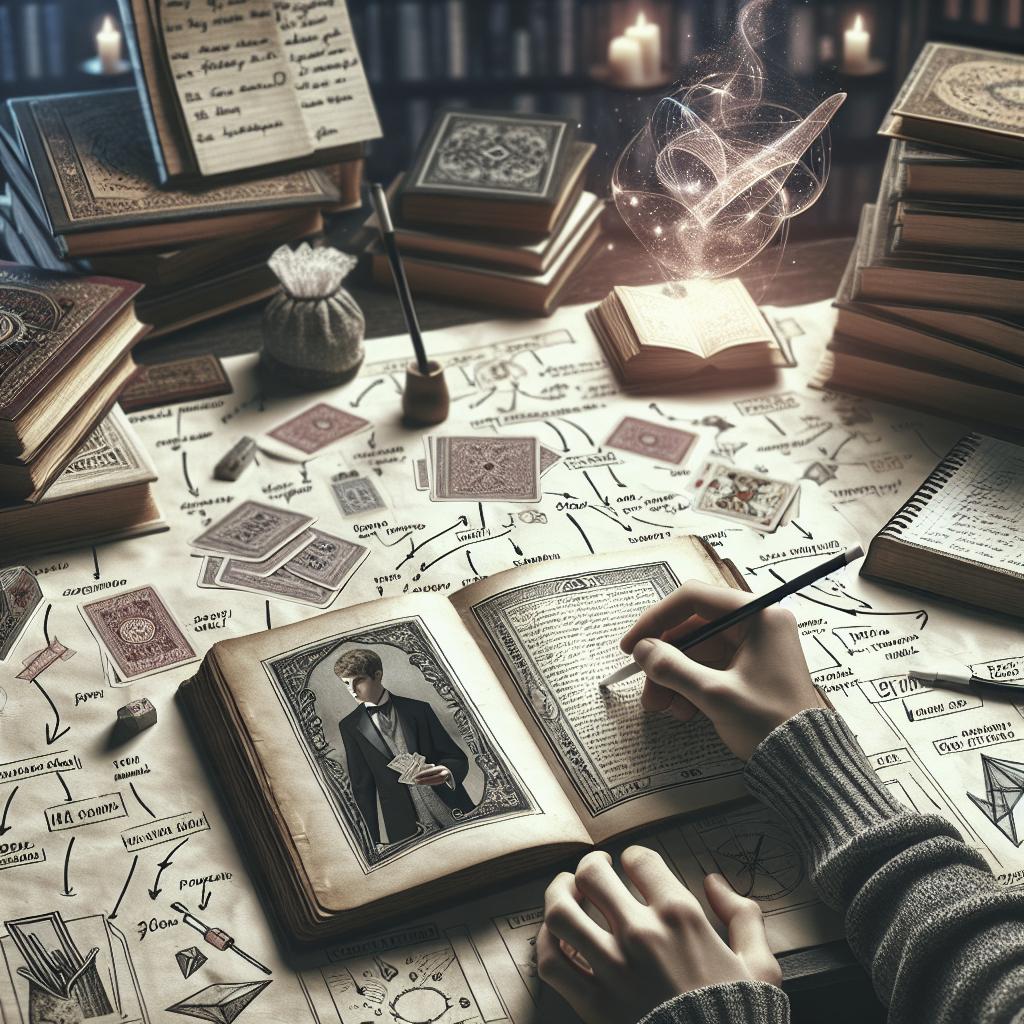“`html
The Ethics of Revealing Magic Secrets
Magic has long captivated audiences worldwide, interweaving art and scientific curiosity. This blog explores the delicate ethics of revealing magic secrets, considering if magic aligns more closely with art or science, understanding the moral implications through the lens of entertainment versus exposure, and viewing it from the magician’s perspective. We evaluate the preservation of wonder against the educational value of exposure and delve into FAQs like the legal protection of magic tricks and the potential justifications for unveiling secrets. We also reflect on the importance of balancing secrecy with transparency in a digital age that challenges the very nature of magic.
Is Magic an Art or a Science?
The debate over whether magic is an art or a science is ongoing. Proponents of magic as an art form argue that it is a creative expression designed to evoke emotion and wonder in audiences. Like traditional art, it is subject to interpretation and personal flair, making each performance unique and impactful.
Conversely, others view magic as a science, based on principles of physics, psychology, and engineering. Magic tricks often rely on clandestine mechanisms and scientific principles, such as optical illusions and cognitive misdirection. This scientific foundation is what allows magicians to create seemingly impossible feats.
Understanding magic as both an art and a science is crucial to the discussion about revealing magic secrets. While the artistry lies in the performance and emotional connection, the scientific underpinnings catalyze curiosity and innovation.
The Magic Circle: An Unwritten Code
The Magic Circle represents an unofficial yet significant code among magicians, emphasizing the sacredness of secrecy. This unwritten bond preserves the mystery and integrity of magic, ensuring that audiences remain captivated and intrigued. Adherence to this code is a rite of passage into the society of magicians, fostering trust and solidarity.
Breaking this code by revealing secrets can undermine the entire art. It not only diminishes the audience’s experience but also risks losing fellow magicians’ trust. An exposed trick loses its ability to amaze and, over time, can erode the magic community’s core values.
On the other hand, transparency poses the risk of diminishing the allure of magic. Thus, the decision to disclose secrets must balance personal gain with the responsibility of preserving the magical experience for future enthusiasts and audiences.
Entertainment vs. Exposure
Magic is primarily entertainment, aiming to elicit awe and wonderment. For audiences, the allure of magic is heavily linked to the mystery and secrecy surrounding the tricks. This entertainment value forms the foundation of the magician’s craft, which hinges on keeping this sense of mystery alive.
However, the exposure of magic tricks, particularly through television and online media, questions the ethics of demystifying what is intended to astound. Some argue that such exposure devalues the craft, reducing magic to mere trickery rather than skilled performance.
Exposure might serve an educational purpose, appealing to those curious about the mechanics behind illusions. Nonetheless, it risks stripping magic of its charm, shifting focus from performance art to scientific spectacle, a trade-off that not all magicians are willing to embrace.
The Magician’s Perspective
From a magician’s perspective, each trick is more than a mere performance; it is the result of hours of practice, skill development, and creative design. Magicians invest deeply in perfecting their craft, constantly pushing boundaries to deliver unforgettable experiences.
When secrets are revealed without a magician’s consent, it can feel like a violation of intellectual property, comparable to sharing a painter’s unfinished masterpiece without permission. This highlights the ethical dilemma surrounding exposure, where understanding a magician’s dedication becomes crucial.
Many magicians also see the value in sharing secrets under controlled conditions. Offering mentorship or structured lessons allows them to educate aspiring magicians responsibly, ensuring that the art continues to thrive while maintaining the community’s integrity.
Protecting the Wonder
One of the strongest arguments against revealing magic secrets is the protection of wonder. Magical experiences thrive on the suspension of disbelief, inviting audiences to embrace the impossible. Disclosures can shatter this illusion, transforming awe into disillusionment.
Preserving this sense of wonder is vital for both the audience and the magician. It is this very enchantment that draws people into performances and encourages magicians to innovate and experiment with new ideas. Protecting the integrity of magic ensures that it remains a vibrant and enriching art form.
Still, as technology evolves, so does the access to information, posing new challenges to maintaining this wonder. Finding ways to adapt while retaining the essence of magic will be crucial for future generations of magicians.
FAQs
Can magicians legally protect their tricks?
While some magic tricks may be eligible for intellectual property protection, the process is complex and not universally applicable. Patents, copyrights, and trademarks each offer limited protection, often unable to restrict performance rights or the core ideas behind a trick. Consequently, many magicians rely on professional ethics and the magic community’s unwritten rules to safeguard their secrets.
What is the role of exposure in the magic community?
Exposure serves a dual role in the magic community. Constructively, it can encourage learning by revealing foundational concepts that inspire new magicians. Conversely, indiscriminate exposure can erode the mystery essential to effective magic. The balance between education and entertainment remains a subject of ongoing debate within the community.
Are there instances where revealing secrets is justifiable?
In certain scenarios, revealing magic secrets can be justified, such as when addressing issues of safety or ethical concerns. Magicians may choose to expose a trick to protect public interest or to innovate new methods. Additionally, within educational contexts, selective revelation can help teach aspiring magicians, ensuring the art form’s evolution.
Final Thoughts: Balancing Secrecy and Transparency
In a rapidly evolving digital world, magic faces the challenge of balancing secrecy with transparency. As the magic community grapples with these ethical quandaries, it is clear that maintaining the allure and integrity of the art form is of utmost importance. Encouraging innovation while protecting the mystery that captivates audiences will ensure that magic continues to enchant future generations.
The future of magic lies in a harmonious blend of secrecy, integrity, and responsible sharing. By fostering a culture of creativity and wonder, magicians can flourish, captivating audiences and inspiring new generations to pursue the exhilarating world of magic.
| Section | Summary |
|---|---|
| Is Magic an Art or a Science? | Explores whether magic aligns more closely with art or science and its implications for revealing secrets. |
| The Magic Circle: An Unwritten Code | Discusses the informal code among magicians that emphasizes secrecy and cultural preservation. |
| Entertainment vs. Exposure | Considers the ethical boundaries between entertaining audiences and exposing magic techniques. |
| The Magician’s Perspective | Highlights magicians’ views on dedication to craft and controlled sharing of secrets. |
| Protecting the Wonder | Emphasizes the importance of maintaining magic’s allure to keep the audience engaged. |
| FAQs | Answers common questions about legal protection, exposure’s role, and justified disclosures. |
| Final Thoughts: Balancing Secrecy and Transparency | Reflects on the future of magic with a focus on secrecy, integrity, and responsible sharing. |
“`

